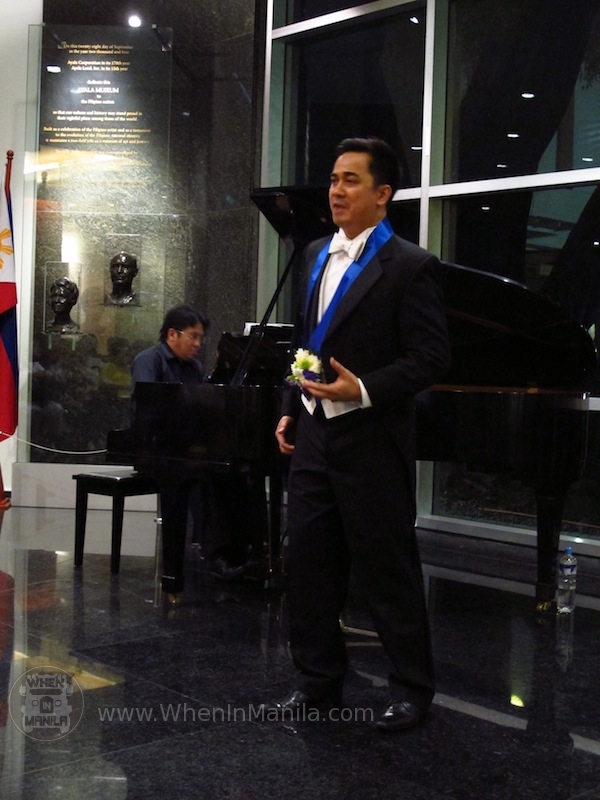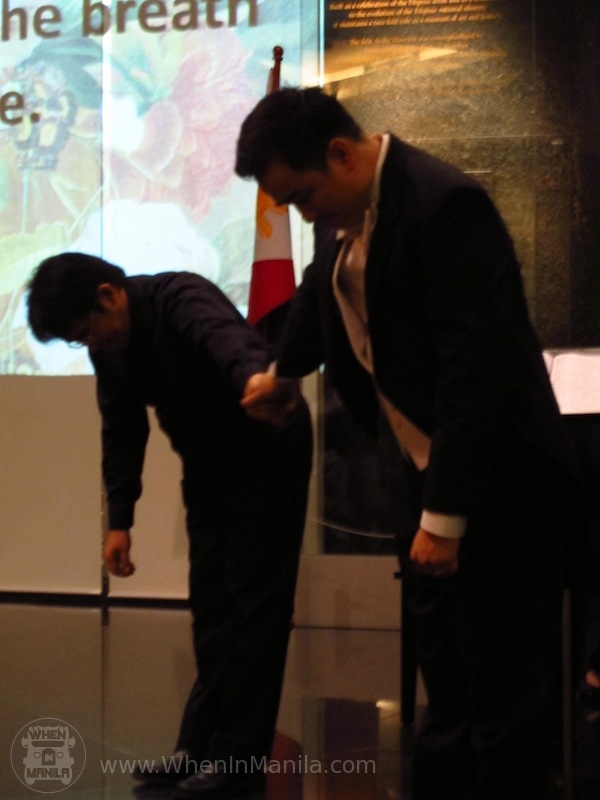The repertoire performed throughout the evening was quite broad, ranging from Schumann’s short German lieder to Franz Liszt’s orchestration of Petrarch’s sonnets to his beloved Laura. Sung in Italian, they sounded almost sacral in their orchestration, as if the singer was worshipping the woman he loved. Liszt’s music also gave the Mr. Ismail’s piano playing more of a chance to shine. As a virtuoso composer, his beautiful “music-box” interludes and challenging, almost dissonant note sequences allowed Mr.
Ismail’s prowess to be fully showcased, skillfully integrating unusual progressions with the vocal line. Mr. Espiritu, too, seemed to be in his element, transformed by the music into the role of the longing lover. With his roguish half-smirk and boyish vigour, he is a “man who sings,” the old-world (but often more alluring) predecessor to the contemporary rock star or “white guy with guitar.
” His movements were panther-like, and for a moment I recalled Erik in The Phantom of The Opera, longing for his Christine.
Arthur Espiritu and Najib Ismail in their encore performance.
But what had to be the most pleasant surprise of the night was the performance of two works by National Artist Lucio San Pedro, for whom 2013 was a centennial year. In honor of the occasion, Mr. Espiritu and Mr. Ismail chose to perform–did I mention that they chose their entire repertoire?–a piece from the Sarswela (Spanish comic opera) “Ang Palabas Bukas” entitled Sampatak na Hamog. But it was the performance of Sa Ugoy ng Duyan, popularized by Levi Celerio and, later, Ryan Cayabyab, that really drew me in. A spin on the traditional lullaby, it tells the story of a child longing to return to the embrace of childhood and his mother. I’d learned it as a grade schooler, and it’s been one of my favorites ever since. The performance was made even more poignant for me and my mother because that evening, February 6, was the birthday of my late grandmother. Unsurprisingly, by the end of Mr. Espiritu’s tender performance, my mom and I were having to hold back tears.
The evening closed with a few opera arias, all in French, a language that I actually understood and was eager to hear sung. With them, Mr. Espiritu was in his element, and his rendition took on the aspect of full-on performance.
They were so wildly successful that he and Mr. Ismail were pressed into doing two more encores, one of which, quite charmingly, seemed to be a personal favorite of Mr. Ismail that Mr. Espiritu agreed to do despite not completely knowing the lyrics. If he had difficulties with the piece–O del mio amato ben, traditionally a woman’s song–it wasn’t obvious at all.






